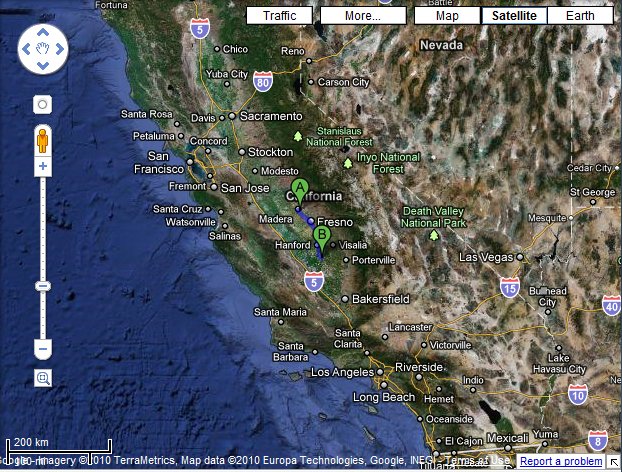Tim Cavanaugh has more information on the high speed (high cost) train to nowhere:
California’s high speed rail project could be shaping up as the awesomest catastrogeddon of 2011.
The California High Speed Rail Authority is committed to breaking ground on a leg of the train that will serve passengers between the unincorporated town of Borden and the half-incarcerated town of Corcoran.

Even saying it will “serve” passengers between the two arbitrary spots on the map is an overstatement: there will be no actual service along this route until after connecting segments are completed and some engines and coaches are purchased.
Background: The CHSRA needs to break ground by September 2012 or lose $2.25 billion in federal funds. The U.S. Department of Transportation has for reasons of its own favored the sparsely populated Central Valley for this first leg of the thinly imagined high speed rail project. Although Golden State Democrats would prefer to start off by connecting San Francisco to Los Angeles or L.A. to Anaheim, they have generally accepted the humiliation rather than lose the funding and miss another start for the nearly 15-year-old project. The recent dedication of a high-speed terminal in San Francisco by outgoing Democratic House Speaker Rep. Nancy Pelosi was for show purposes only.
Geography buffs are invited to try and make any sense out of the CHSRA’s proposed alignment. Not only does the authority plan to incur all the financial and public relations costs of driving a 150-mph train down the heavily populated and extremely wealthy San Francisco-to-San Jose corridor; but it then plans to sacrifice the only goal that could possibly make that trouble worthwhile: a direct San Fran-L.A. run.



